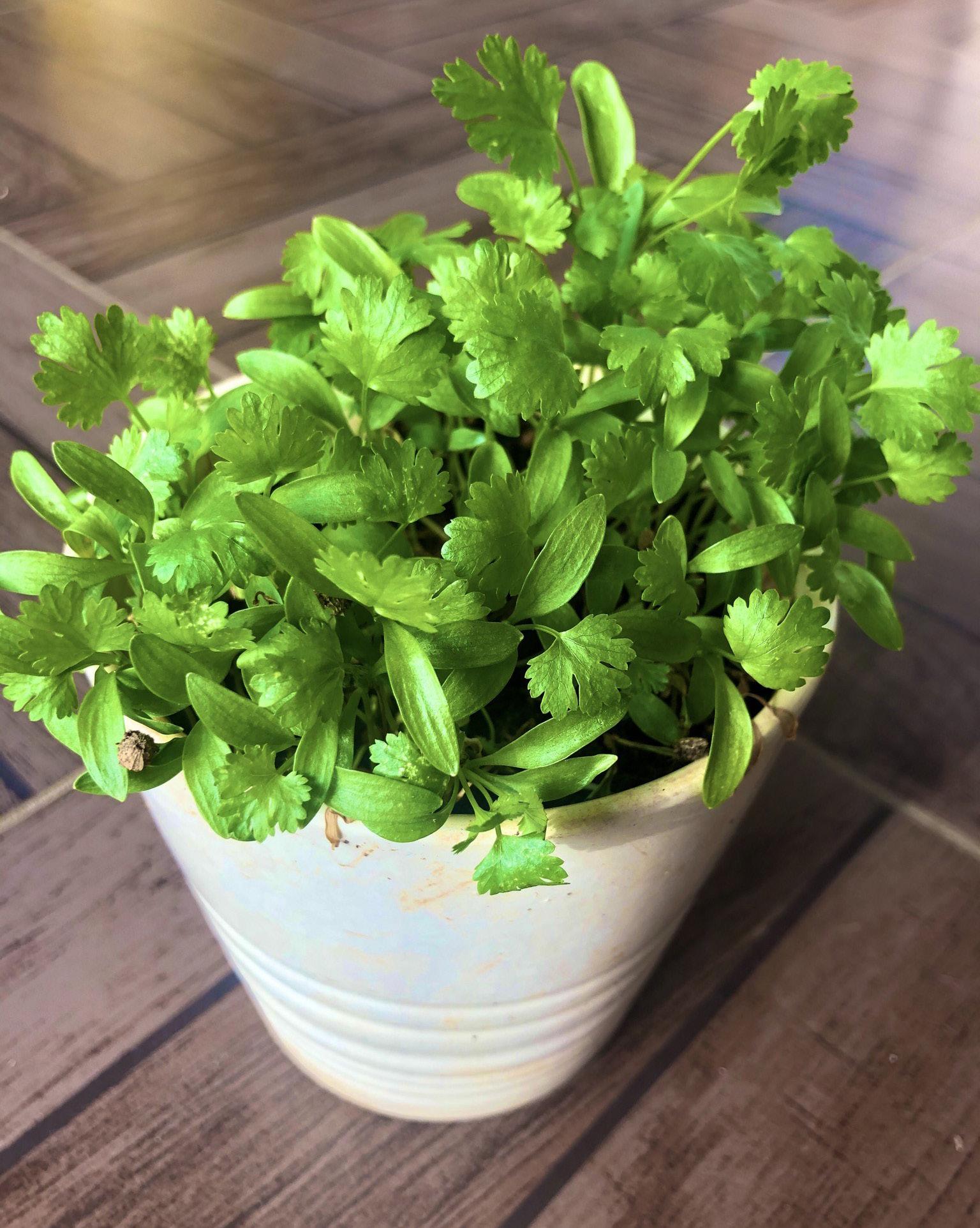
8 minute read
WELLNESS
| WELLNESS Urban Farming
Urban farming, a well-received concept right now. Is, in fact, age-old and practised by our grandparents but lost to us. The idea of eating fresh produce and knowing our roots is essential, which many of us do not give thought. Urban gardening is crucial to have in urban dwellings civic centres cannot be only concrete. Urban planning is for individuals and communities to be healthy- body and mind. Here are two ardent urban farmers who are doing it right and educating us to eat holistically and live mindfully.
Advertisement
-By Amrutha Varshini Kothapally
Sridevi Jasti is a holistic nutritionist with extended cliental includes sportspersons, doctors, actors and organic & whole foods chef by profession. She is the founder of Vibrant Living Foods. Her elaborate terrace garden is just as vibrant.
What is vibrant living? How would you define it? Vibrant living is mainly a food business. Holistic and whole foods that are tasty and healthy and Holistic living is what we encourage through this venture. Food alone is not a solution for good health and quality of living. Living sustainability and mindfully is what constitutes vibrant living. How can you relate urban farming to holistic living and sustainable lifestyle? Gardening is beneficial in multifold. When you grow something that you can consume, it also makes you understand life in itself. Gardening also teaches life lessons that not everything is under our control. The life cycle of seed is so magical and makes you realise that it has so much potential just like people’s thoughts. Furthermore, artificial approach to plants makes them less nutritious. The right food is from the right soil and seed.
Why is soil health important? Soil health determines your health. The health of food depends on the health of the soil. It also tastes better and provides more nourishment. The nutrients necessary for us come from the here. When soil is naturally healthy, plants are going to be naturally healthy.
How can people instill the concept of respecting what they eat? Why is it important? The easiest way is by growing some microgreens and expanding from there. Growing plants give you a sense of responsibility and sense of accomplishment, especially for children. They get to know where our food originates. The concept of farm to table is not new we have always practiced this. Convenience made us ignorant. Growing food helps us realise what is desirable for you and helps us in making better choices.
How can an amateur get into creating a terrace gardening? Starting slow is the key. Start with understanding soil health. I remember my time in Canada when I took up backyard gardening with sunflowers, tomatoes, broccoli, strawberry, inside and outside my house. Every moment outside of work I spent here. It was so demanding that I did not take this up the following year!
People presume that growing veggies at home is expensive and
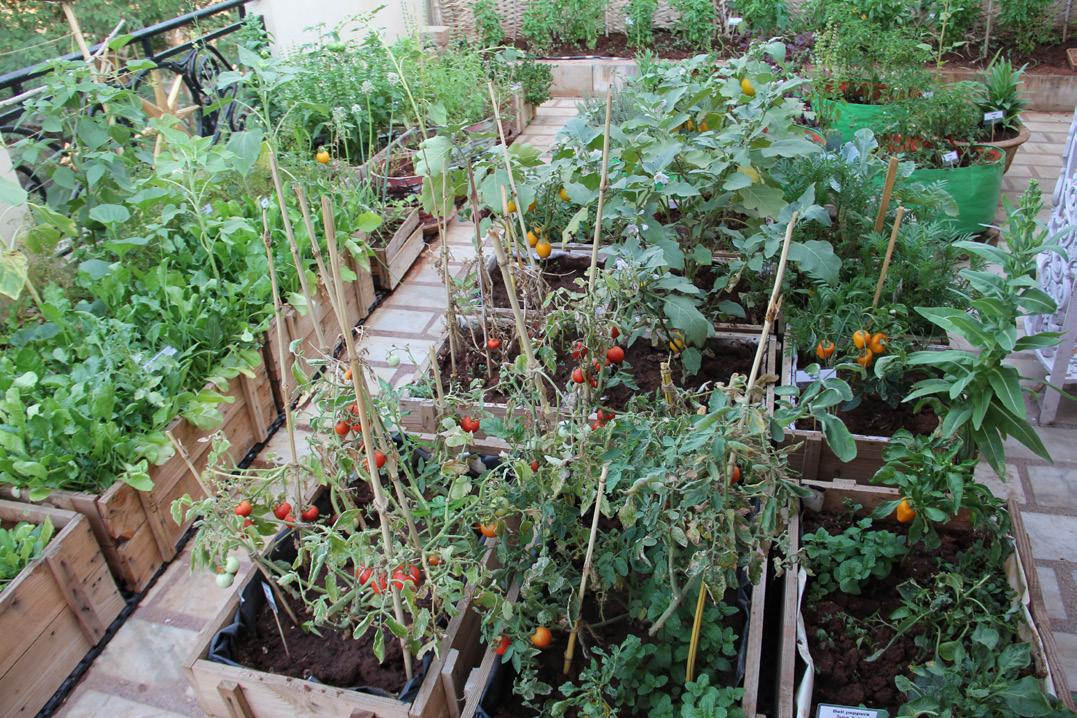
demanding. Is it taxing according to you?
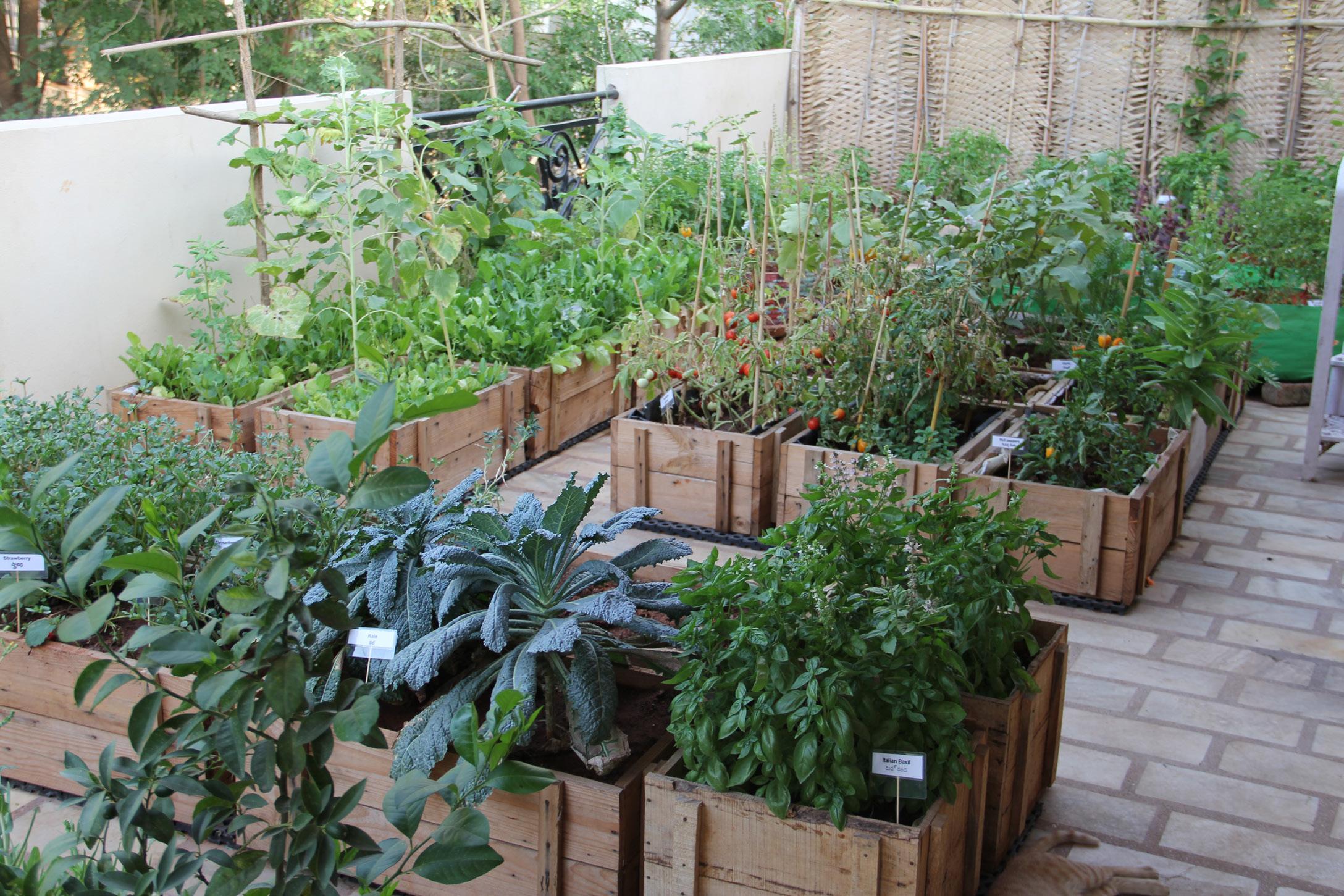
It will be time taking. Starting slow and gradually will help you learn from your mistakes. It’s as much living as a human. It needs to be looked after and needs to be maintained. You have to grow them sustainability like a cycle. Creating your manure from food waste and creating an ecosystem out of it.
On your page, you mention that seasonal fruits calories do not count. Why is it important to eat locally and seasonally available produce? Simply because they are tasty and you get satiated when you eat the right kind of food. You will never overeat on local and seasonal food. Also keeps cravings in check. Local produce is not artificially ripened and don’t do through transit. Food like Turmeric, ajwain, tulsi, and ginger foods that we have locally is essential for our diet. Eating whole foods and a variety of local food is the key that nature has given us.
You have lived and travelled from Toronto to Florida to Tuscany and Florence, learning more and more about food. What is the vast difference do you see in the urban farming culture here and these places? Urban farming in America and Canada has community farming. Community gardening is popular culture and not very common here. This experience inspired me to create something similar here. West realised it earlier that fast food isn’t good for us. Living there got me to learn and practise it.
Do you think hydroponics is a proper way to start terrace farming? If you don’t have access to soil, hydroponics is the answer. But nothing like growing in soil. It also helps in managing kitchen waste and living a zero-waste sustainable lifestyle. You don’t have to buy nourishments for your plants to grow, which makes it expensive.
What motivates you to continue this lifestyle? Being just as excited as when I was a child to see a plant grow even today. That excitement makes me happy and inspires me to do this. Also making others just as excited is precious.
What advice would you give to a budding urban terrace farmer? Start clean. Ask questions when you eat, when you buy seeds or soil. Don’t look for shortcuts, be patient and consistent. You will make mistakes and kill some plants in between. It happens. Restart learn and enjoy. The reward is immeasurable.
Instagram: (@vibrantlivingbysridevijasti)
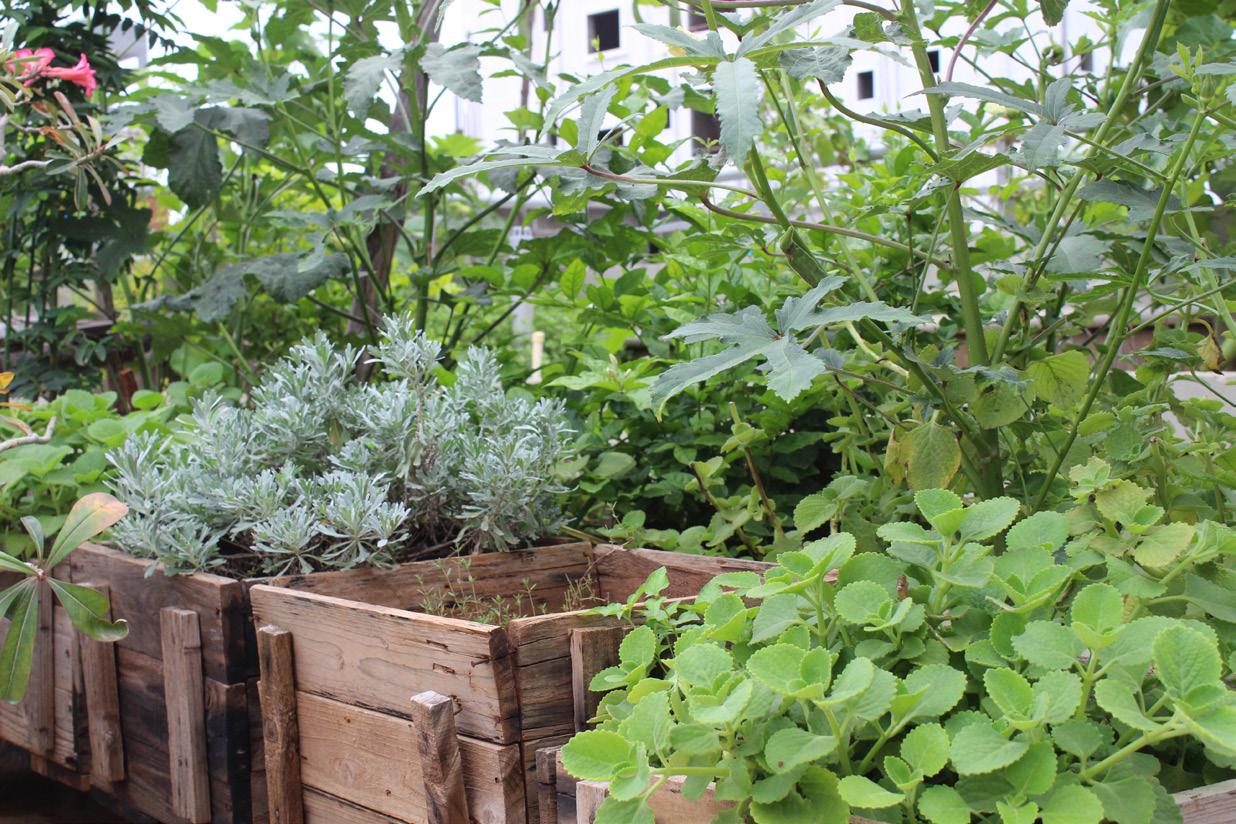

How did you start with your terrace farming? Where or from whom did you learn to take this up? The way I was brought up, by my parents and grandparents influenced me a lot in getting into gardening and also conscious about wastage. 2013 is when I would say I started experimenting growing food in containers and small spaces. I belong to a farming family! All my inspiration is from my roots. Facebook group called INTIPANTA organic kitchen/terrace garden also helped me to learn gardening tips and tricks with their concept of visiting homes of urban gardeners. I’m glad to be part of the core team currently. Now the group is 40k+ strong. I call myself a ‘YouTube Gardening Graduate’. What is farm to table? Why is it important for people living in cities to realise this? First off, it’s all-natural and fresh! There is nothing like biting into a fresh ripe tomato plucked from the plant. The flavour is just one of the pleasures you can enjoy when you grow your food. You control the growing environment of your garden. There is no need for chemicals and pesticides in your backyard garden. If you have problems with disease or pests, there is usually an organic remedy to solve it.
How can a beginner get started into creating a terrace garden? Always start with growing greens, which are easy to grow and can be grown in any space. Honestly, microgreens are the ones that are highly polluted. Local varieties are easy to grow! They adapt to the environment around them. Thus nature is also supporting the gardener.
Is growing food expensive and demanding? What is your advice on this? There are so many options we can consider to grow food. It need not be fancy. You will be surprised you can build a mini spinach farm using milk packets. We spend so much time/money to get a fancy smartphone with a good touch screen, picture quality, etc. Why not spend time to grow safe and tasty food?
What’s your opinion on hydroponics to grow plants? If you have no balcony or sunny windowsill then these systems can be incredible. But personally, nothing beats being outdoors with dirt under my nails.
What is the idea behind “Composting is Cool”? Hyderabad alone generates 5200 MT of trash every single day, sent to landfills. We take out our trash and feel lighter and cleaner. But at the landfill, the mixed waste is decomposing and releasing leachate that goes under polluting the groundwater and also releases methane, a greenhouse gas 28 times more potent than carbon dioxide. Landfill gas also contributes to smog, worsening health problems like asthma. I have heard people saying the landfill is faraway I am safe! Did you forget
Bargavi Bijjam is an urban farmer from Hyderabad. Her terrace farm leaves you in awe and inspires you to start your own. Her enthusiasm for this subject results in her Instagram followers educated on how to grow your food organically and ethically.
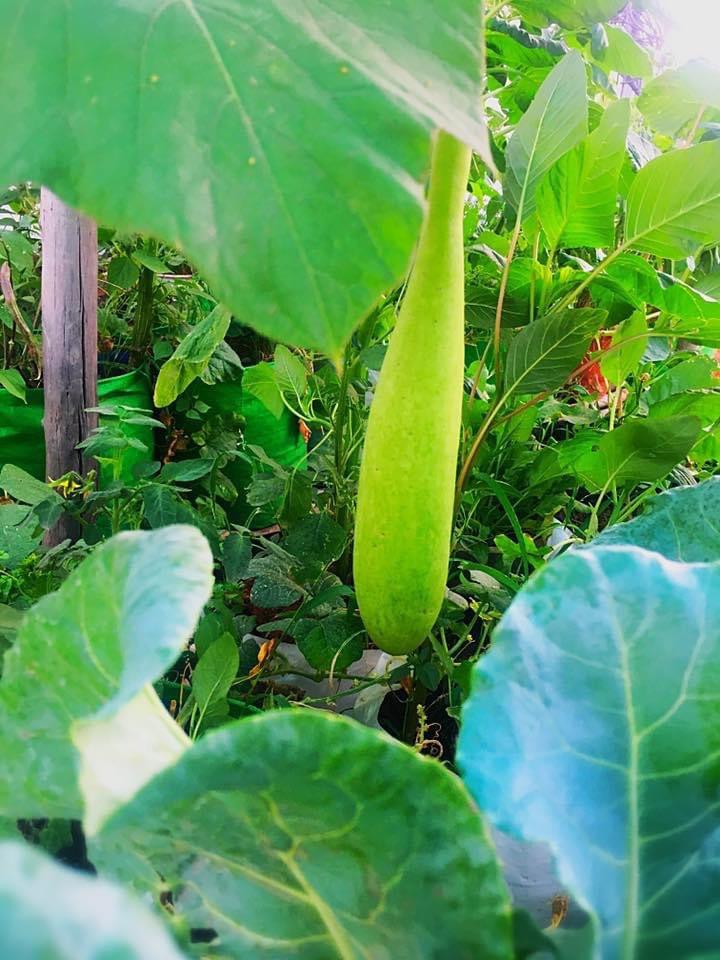
how fast the air travels? We are never far.
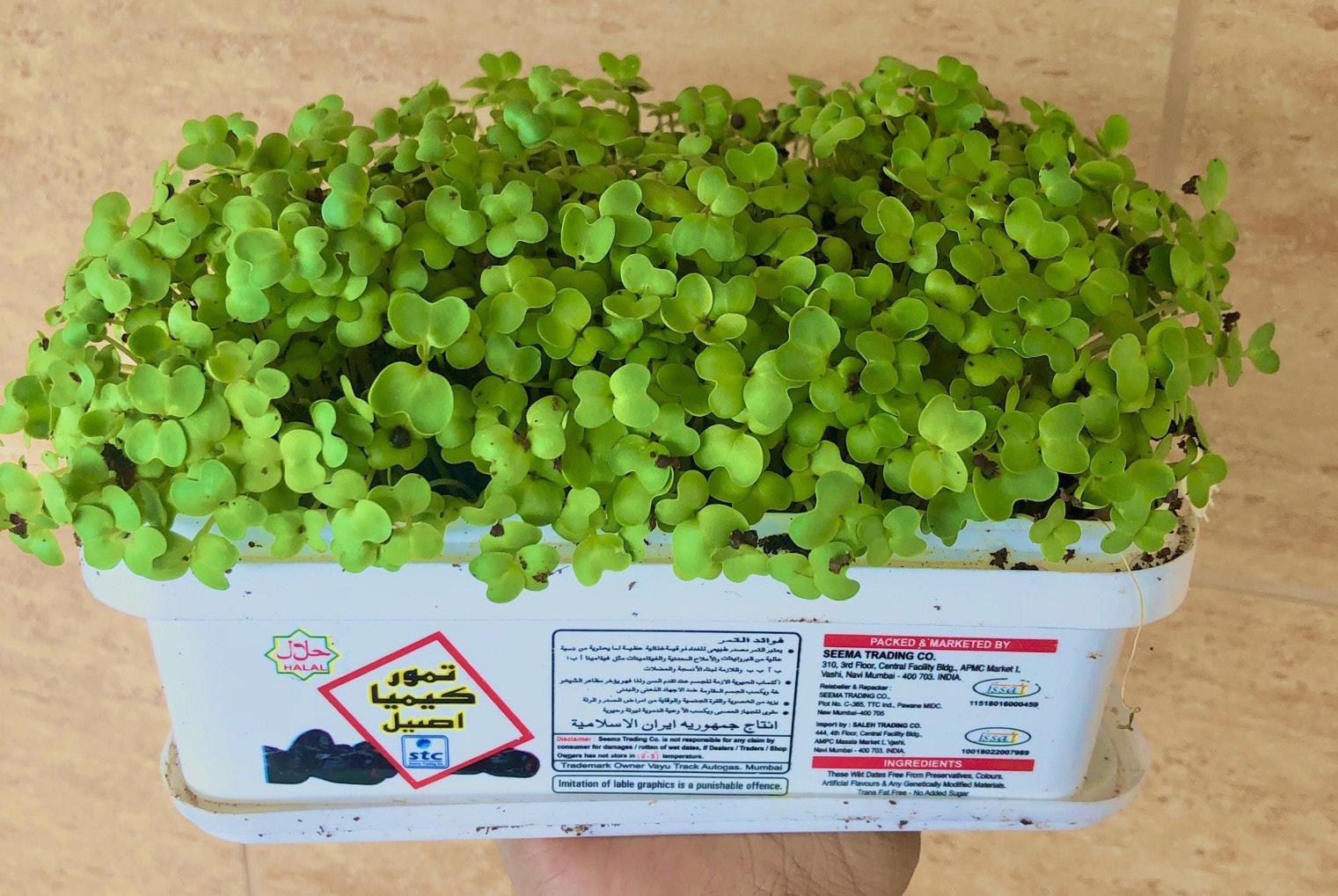
How to get into composting efficiently with limited resources? There is no hard and fast rule for composting. All we need are five things- Kitchen waste (fruit peels/veg peels/eggshells/ tea & coffee powder), Dry waste (dry Leaves, cocopeat, soil), Oxygen (for aeration), Container (a broken bucket/pot/kambha) & Microbes (butter Milk/ idly or dosa batter). It is about layering the kitchen waste and dry waste in the container. Add microbes for faster break down and mix up the pile for enough aeration as it doesn’t get compacted. If you grind the waste, the break down will be quicker and, volume-controlled.
You were part of the GHMC Saaf Hyderabad Shandaar Hyderabad Campaign. What social change were you aiming to bring in people? Yes. I was a part of GHMC Saaf Hyderabad Shandaar Hyderabad campaign which discontinued now. Campaigns lead to social change. We recognized that behavioural change is critical for the adoption of solid waste management practices. Our campaigns were designed to influence and lead movements to create a large-scale adoption of practices. Campaigns softpeddle the Policy and Rules implementation through building voluntary engagement, information dissemination and largescale adoption.
What is the advice you would give others who want to start urban farming? Some things are better experienced than told. Home Grown is the safest and tastiest than anything you could ever buy. Start small. Learn from your mistakes you will live a vast journey.
